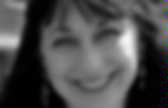

Proust and the Squid: The Story and Science of the Reading Brain (9780060933845): Maryanne Wolf. Slideshare - Diaporama. Nuage de Tags. Les-neurones-de-la-lecture-960232-250-400. Nicholas of Cusa. In his first work, the 1597 Mysterium Cosmographicum, Kepler wrote, “For this one fact, Nicholas of Cusa and other seems to me divine: that they attached so much importance to the difference between the Straight and the Curved.” (Mysterium Cosmographicum, A.M. Duncan translation, p. 92) Who was this “Nicholas of Cusa," and how did he influence Kepler's thought? Reading Circuitry in the Chlid's developing brain. Mécanismes cérébraux de la lecture. Proust Sur la lecture. BRAIN POWER: From Neurons to Networks.
Kant. Eléments de biographie Kant est né à Königsberg (Prusse orientale) en 1724, dans une famille modeste. Il ne quittera jamais sa ville natale. Il reçoit une éducation piétiste. Après des études de théologie et de philosophie, il devient précepteur en 1746. Il est nommé professeur titulaire à l'université de Königsberg en 1770.